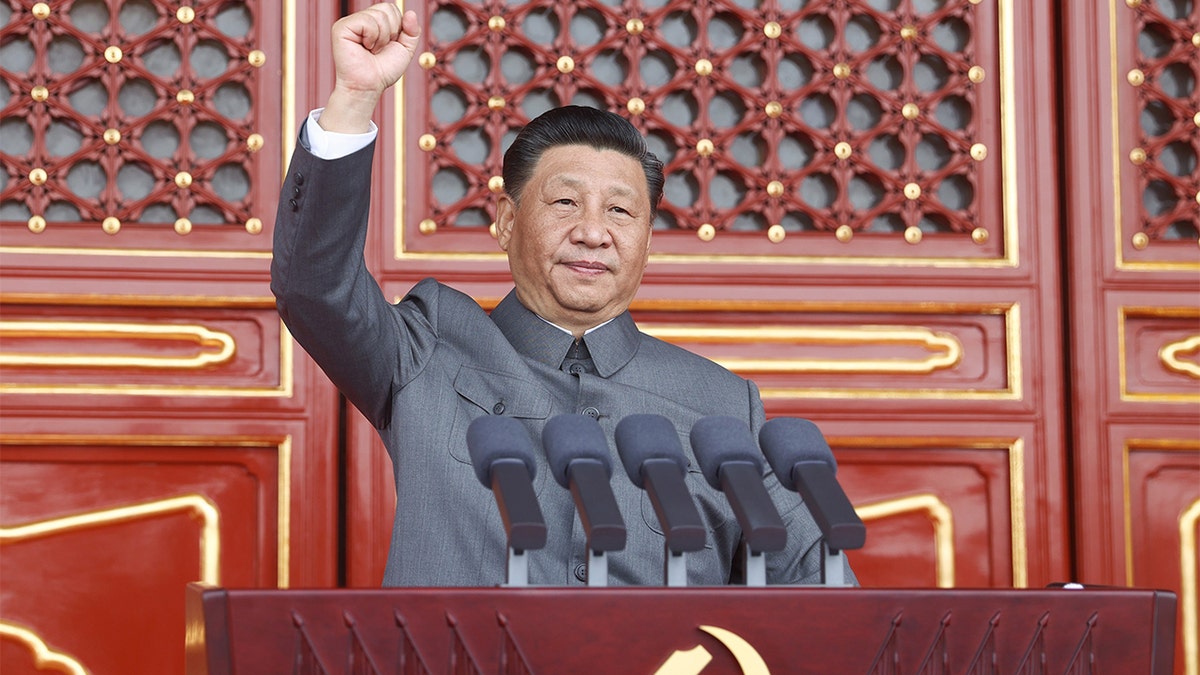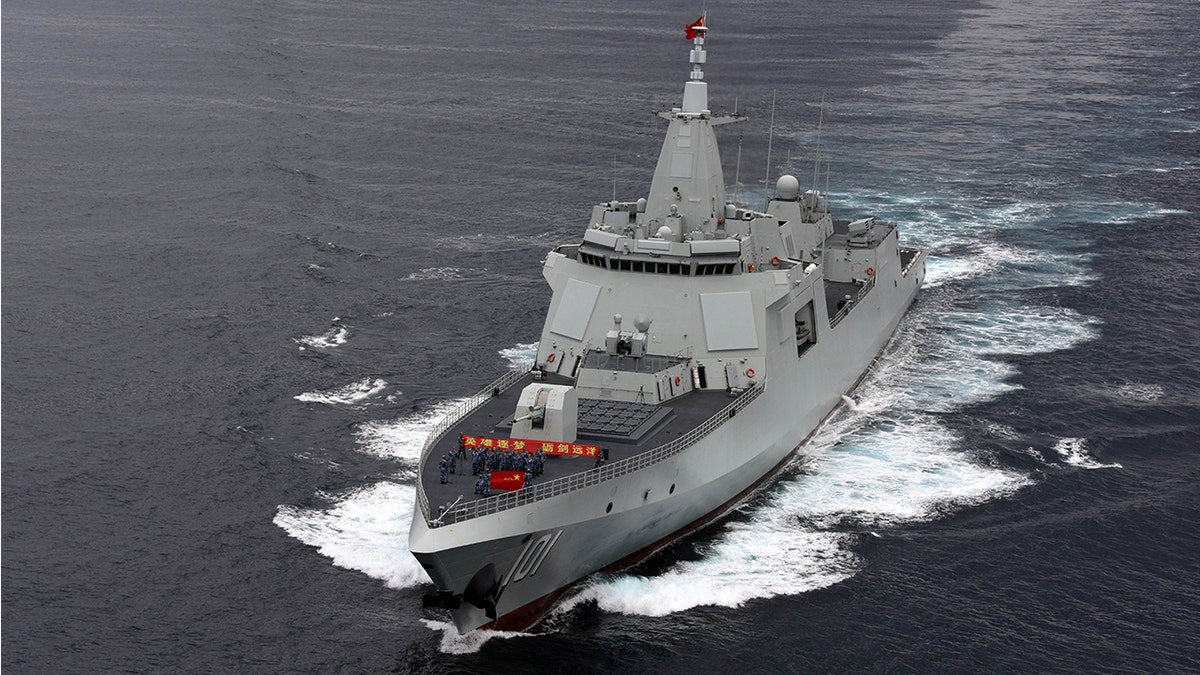Fox News Flash top headlines for November 3
Fox News Flash top headlines are here. Check out what's clicking on Foxnews.com.
China is building nuclear warheads at an "accelerating pace" and will have 1,000 by the end of the decade, according to the Pentagon's new China report released Wednesday after a two-month delay.
Just a year ago in the last China report, the Pentagon had estimated China’s nuclear arsenal to be in the "low-200s" and would "at least double" over the next decade. The new report demonstrates China is expanding much more rapidly.
"The accelerating pace of the PRC’s nuclear expansion may enable the PRC to have up to 700 deliverable nuclear warheads by 2027. The PRC likely intends to have at least 1,000 warheads by 2030, exceeding the pace and size the DoD projected in 2020."
The PRC, or the People’s Republic of China, is how the Pentagon refers to China.
ANTONY BLINKEN: US WILL SUPPORT TAIWAN AGAINST CHINESE AGGRESSIONS
China is able to build up its nuclear stockpile by "increasing its capacity to produce and separate plutonium," the report says.
The U.S. is currently treaty limited with Russia to deploy up no more than 1,550 nuclear warheads. China is under no such restrictions because they don’t have any arms control treaties with any other country.

Xi Jinping, general secretary of the Communist Party of China CPC Central Committee, Chinese president and chairman of the Central Military Commission, delivers an important speech at a ceremony marking the 100th anniversary of the founding of the CPC in Beijing, capital of China, July 1, 2021. (Photo by Ju Peng/Xinhua via Getty Images) (Ju Peng/Xinhua via Getty Images)
China "is building hundreds of new ICBM silos, and is on the cusp of a large silo-based ICBM force expansion comparable to those undertaken by other major powers," the report warns.
Over the summer, U.S. intelligence detected the presence of the missile fields and civilian satellite radar discovered some of them.
The report says in 2020, China launched more than 250 ballistic missiles "exceeding its launch numbers for 2018 and 2019 despite COVID-19."
CHINA SAYS IT'S AN ‘IMAGINARY ENEMY’ OF US, CLAIMS HYPERSONIC MISSILE TEST WAS ‘ROUTINE’
A year ago in its last annual report to Congress, the Pentagon said China had amassed the biggest Navy in the world. It has since improved according to the new annual report to Congress.

China's type 055 guided-missile destroyer Nanchang sails during the naval exercise Joint Sea-2021 on Oct. 19, 2021 in the Western part of the Pacific Ocean. (Photo by Sun Zifa/China News Service via Getty Images) (Sun Zifa/China News Service via Getty Images)
"In the near-term, the PLAN will have the capability to conduct long-range precision strikes against land targets from its submarine and surface combatants using land-attack cruise missiles, notably enhancing the PRC’s global power projection capabilities."
The report measures the growth of China’s military in 2020 only, it does not account for China’s growth this year. The report did not cover the recent hypersonic weapons test from space, which caught U.S. intelligence by surprise.
The newly released report did cover the following development in the field of hypersonic weapons—the first deployment of the advanced system that travels five times the speed of sound, but more importantly according to experts, it does not travel in a predictable, ballistic trajectory.
"In 2020, the PLARF began to field its first operational hypersonic weapons system, the DF-17 hypersonic glide vehicle (HGV) capable medium-range ballistic missile (MRBM)," the report says.
The U.S. military’s top officer, Gen. Mark Milley called the recent test of a Chinese hypersonic a "very significant" test.
"We're witnessing one of the largest shifts in global geostrategic power that the world has witnessed," Milley warned NBC’s Lester Holt at the Aspen Security Forum Wednesday. "If we, the United States military, don't do a fundamental change to ourselves in the coming 10 to 15 to 20 years, then we're going to be on the wrong side of a conflict."
Milley later predicted a Chinese invasion of Taiwan is "not likely" in the next two years.

Chairman of the Joint Chiefs of Staff Gen. Mark A. Milley testifies before a House Armed Services Committee hearing on the conclusion of military operations in Afghanistan at the Rayburn House Office building on Capitol Hill on September 29, 2021 in Washington, D.C. (Photo by Olivier Douliery - Pool/Getty Images) (Olivier Douliery - Pool/Getty Images)
The Pentagon’s new China report has added a section on "Chemical and Biological research," saying China has "engaged in biological activities with potential dual-use applications, which raise concerns regarding its compliance with the Biological and Toxins Weapons Convention (BWC) and the Chemical Weapons Convention (CWC)."
The report did not touch on the origins of the COVID-19 pandemic. A senior defense official said the Pentagon is leaving that issues to the Director of National Intelligence.
Milley recently said China’s test of a hypersonic missile while orbiting the earth was very close to a "Sputnik moment."
CLICK HERE TO GET THE FOX NEWS APP
In an interview with Fox News, Elbridge A. Colby, former deputy assistant secretary of defense for strategy, said it’s not just China’s development of hypersonic weapons that is concerning; it’s Beijing’s overall military advancements including its nuclear forces.
"The Sputnik moment was kind of this idea that we finally woke up to something. There are plenty of Sputnik moments we have before us," Colby said in an interview with Fox News and author of the new book The Strategy of Denial: American Defense in an Age of Great Power Conflict. "It's Sputnik on steroids."
"There is a sense that we can't be beaten and that's just wrong. We can be beaten," Elbridge added.








































